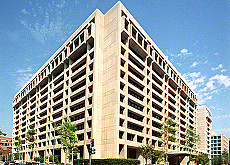Central bank tightens the reins once more

The Swiss National Bank has raised its key interest rate by 0.25 per cent for the seventh quarter running, in a move that had been widely expected by the markets.
The rate increase is a sign the central bank is still concerned with the risk of inflation caused by buoyant Swiss economic growth and the current weakness of the franc.
At a news conference in Bern on Thursday, the SNB said it had increased the target band for the three-month Swiss franc Libor (London Interbank Offered Rate) to 2.00-3.00 per cent, aiming for the middle of the range.
It added that further interest rate increases were likely if the economy remained strong.
Should economic momentum remain unchanged or should movements in the Swiss franc result in a further relaxation of monetary conditions, more increases in the interest rate are likely in the months ahead, said the bank in a statement.
Assuming the key interest rate remains unchanged at 2.5 per cent, the bank expects an average annual inflation rate of 0.8 per cent this year, 1.5 per cent in 2008 and 1.7 per cent in 2009.
The SNB’s president, Jean-Pierre Roth, said the inflation outlook had deteriorated since the last assessment and a renewed weakening of the franc had not helped the situation.
“Today’s decision to raise the target range… takes into account this deterioration in the outlook for price stability,” he said.
“Excellent shape”
The bank said that Switzerland’s economy was “in excellent shape”, developing even better than expected back in March.
It now expects the Swiss economy to grow in 2007 at a rate close to 2.5 per cent. Its previous forecast was for around two per cent.
Commenting on the rate increase, currency strategist Adrian Hughes at Société Générale said: “The SNB may see the domestic economy is in excellent shape but so is every other economy. So there is no room for outperformance.”
Nikola Mirtchev at Informa Global Markets said market reaction should be muted as the rise had been expected.
“The inflation profile is little changed at first glace, but shows that the SNB still expects the CPI (consumer price index) to move higher this year and next.”
Fabian Heller at Credit Suisse shared that view.
“They just increased their estimate of GDP to 2.5 per cent, and they are still talking about a worsening of the inflation risks. We think that the risks for more [rate rises] in 2007 have increased.”
swissinfo with agencies

More
Swiss National Bank
Growth forecasts for the Swiss economy in 2007:
Swiss National Bank (SNB): 2.5%
BAK Basel Economics: 2.5%
KOF Swiss Economic Institute: 2.4%
State Secretariat for Economic Affairs (Seco): 2%
The SNB said it felt that Switzerland’s banks should be able to withstand a sharp deterioration in the economic environment but the full extent of their risk exposure was not clear.
It warned that any mistakes made in assessing the risk levels of UBS and Credit Suisse could have serious consequences for financial stability in Switzerland.
The SNB also said small and medium-sized banks in particular were not disclosing enough information about their risk exposure.
It also cautioned that a favourable economic climate could deteriorate “surprisingly quickly and strongly” as had been observed several times in the past.
The SNB has announced it is to sell 250 tonnes of gold over the next two years and use the money to increase its foreign exchange reserves.
It said the sales would be carried out in stages to avoid unsettling markets.
The SNB holds currency reserves in the form of foreign currency and gold, ensuring it has room for manoeuvre in its monetary policy at all times.
Once the sales have been completed by September 2009, the bank’s gold holdings will be reduced to 1,040 tonnes.

In compliance with the JTI standards
More: SWI swissinfo.ch certified by the Journalism Trust Initiative










You can find an overview of ongoing debates with our journalists here . Please join us!
If you want to start a conversation about a topic raised in this article or want to report factual errors, email us at english@swissinfo.ch.